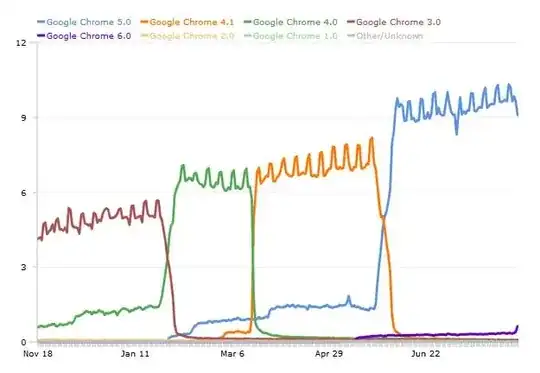I'm working on a site for my company which, up until a certain point, was an Internet Explorer-only site for various reasons, mainly that when the site was originally conceived IE had a 90%+ market share so the work to get it working in other browsers just didn't make sense.
Now that we live in a more diverse browser economy we're doing the work to get the site working everywhere, and as luck would have it a decent chunk of it just happens to already work.
However, one issue we're struggling with is the issue of what to support and what not to support. For starters, non-IE browsers release much more frequently than IE did, and you don't know which versions are still in the wild. There's been basically three versions of IE released in the last decade, and IE6 is still supported until 2014. But there's an update for Firefox every other day, Apple updates Safari more or less annually. And then there's Chrome.
Chrome has gone from 0.2 to 9.0 in a little over two years. 7.0.517 was released a month and a half after 6.0.472. There's three different versions out right now, a stable, a beta, and a dev. And the dev version of 9.0.587 was actually released before the latest beta version of 8.0.552.
With IE we've had the situation arise where we have to support an old version because the IT department of the company in question does not allow the employees to upgrade. With non-IE browsers I'm thinking we'll adopt the line of "update to the latest or we can't help you" but I'm not sure how effective that is.
Also, my company does some amount of artificial limitations. For example we have a product aimed at companies so we don't support "Home" versions of Windows (i.e., XP Home, 7 Home Premium) even though there's no technical reason we couldn't.
When my company starts asking "what version or versions of Chrome do we support", how should I answer?
